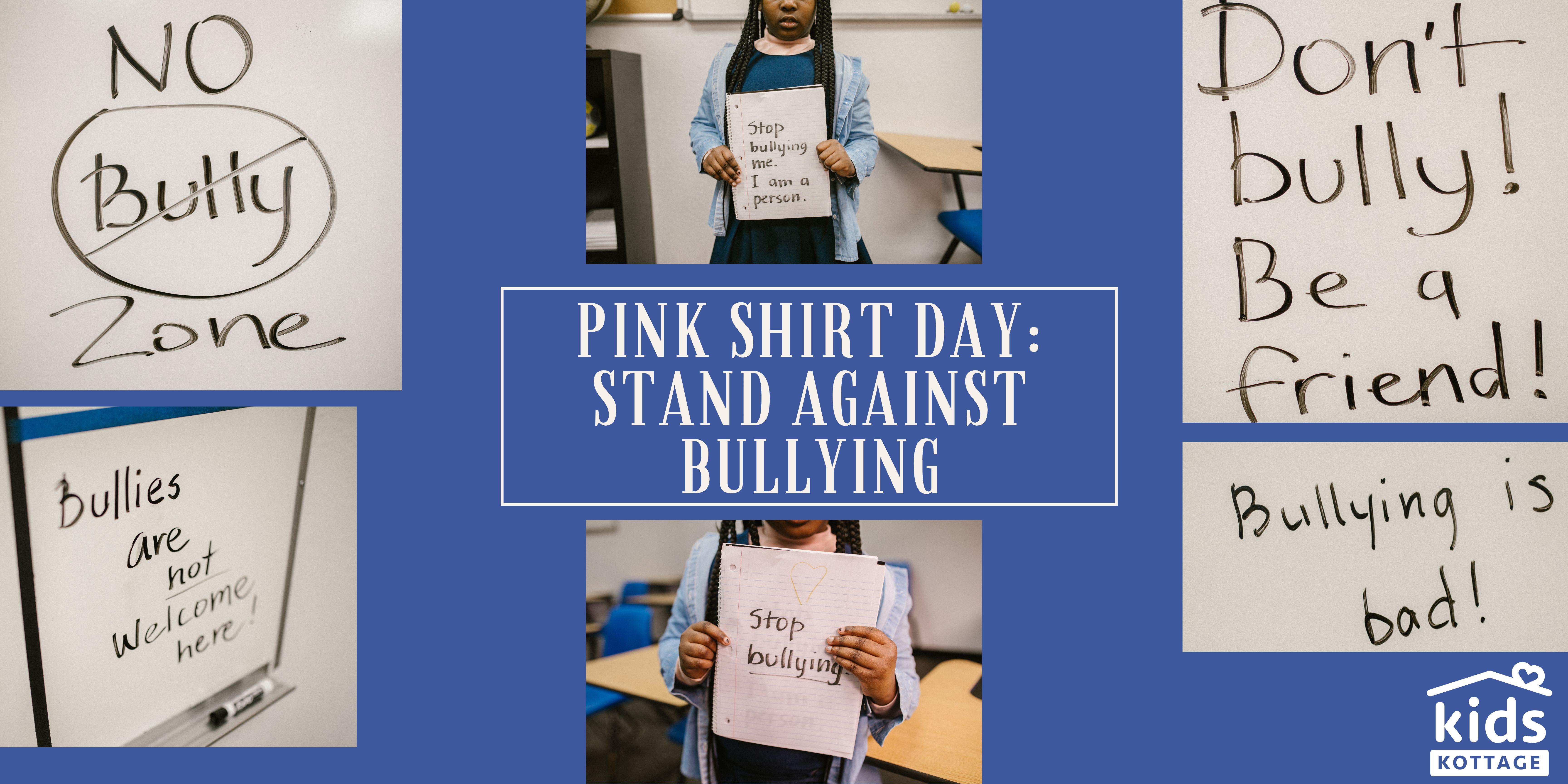
Pink Shirt day, which is aimed to raise awareness around bullying, is celebrated on Feb 22nd.
Pink Shirt Day began in 2007 when a student in Nova Scotia was bullied for wearing a pink shirt to school. It has since been recognized annually worldwide as a day to Stand Against Bullying.
Pink Shirt Day helps to boost awareness of bullying and increase funding for programs to counter the behaviour, including programs to prevent violence and encourage self-esteem, kindness, and empathy among youth.
This year's theme, #BeKindAB, encourages Albertans to be inclusive, welcoming and supportive of colleagues, clients, friends and family. Building healthy relationships is one of the best ways to prevent bullying and create safe environments.
Here are a few ideas to get involved:
- Share Pink Shirt Day resources on social media
- Practice acts of kindness
- Discuss your role in bullying prevention with your friends, family or coworkers
- Learn where to turn for help, like Bullying – Find supports
Bullying can show up in many ways. It can come from aggression, threats, intimidation, and harassment. It is not confined to the playground or school and is not limited to children and youth. It permeates and pervades many systems and is experienced well into adulthood.
Bullying can emerge in children as young as three and we’re likely to see bullying to occur in preschools, kindergartens, playgroups, childcare, and any other social context where children interact (such as home, extended family gatherings etc.). When a preschooler is being bullied, it can be really hard for them to talk about it. This is when children are first learning how to talk with more words, let alone name their complicated feelings. When children are mistreated, especially so early in life, they may come to think this behaviour is ‘acceptable.’ Or that it’s their fault. Worse: they may even emulate it.
More than 75% of people say they've been bullied. More than 90% of bullying incidents have peer witnesses; when those peers intervene, most incidents are over within seconds. But if they don't – if these witnesses act as bystanders and not upstanders – the ongoing bullying can have dire and long-lasting consequences. It is linked to adverse mental health ramifications and can persistently challenge our physical health, along with our psychological safety and well-being.
We likely know someone (either a child or an adult) who has been or is being bullied. According to Statistics Canada, one in three Canadian teens in school has reported being recently bullied. And bullying isn't confined to school halls and classrooms. It can also affect people online and at work. According to the Canadian Institutes of Health Research, 40% of Canadian workers experience bullying on a weekly basis.
When it comes to bullying, no one wins. In the short-term, bullying can be detrimental to both the individual being bullied and the bullier. The effects of childhood bullying are linked to poorer mental health and well-being, and the harms can linger well into adulthood.
Younger children view bullying as being hurtful and aggressive, but they typically do not recognize that bullying involves repetitive behavior or a power imbalance . Young children’s ability to understand bullying may also be affected by their somewhat limited understanding about motivation and intention; some may be unable to compare peer responses, reflect on their own behavior, or understand another’s point-of-view until they are in early elementary grades.
Parents and caregivers have an important opportunity and responsibility to help stop bullying before it starts in early childhood. However, most adults do not think about bullying until it has already grown into a major problem.
And just as important as it is to talk about victims of bullying, those children who bully others will also display changes in their behaviour and are at risk of developing mental health challenges or engaging in risky behaviours such as substance use.
Children and youth who are bullying others tend to act more aggressively towards siblings, parents and friends and may blame others for problems they're experiencing.
One solution is to discuss healthy relationships and model these behaviours at home. It's also essential to set clear limits, discuss conflict resolution and help children with healthy coping skills and tools to manage their emotions.
To mitigate bullying effectively, caregivers need to begin in the early childhood years to:
- Understand the nature and origins of bullying;
- Discuss and establish clear rules with young children that disallow harmful behavior and encourage helpful behavior;
- Teach and give young children practice in applying prevention skills they will need to strengthen in the roles of bully (empathy skills), victim (assertiveness skills) or bystander (problem-solving skills); and
- Prepare themselves to recognize and respond effectively to young children’s “pre-bullying” and early bullying behaviors.
By working together before bullying has become a difficult and established problem, young children and adults can support each other in becoming effective bullying preventers.
At Kids Kottage, we stand against bullying and encourage everyone to be kind towards each other.
Stop Bullying at Its Roots—in Early Childhood
We are Edmonton's only crisis intervention and prevention shelter for infants and children, and we need you.
We want to build a vibrant, thriving community that helps to care for the most vulnerable among us, but we can't do it without your support.
By donating to Kids Kottage Foundation, you are helping keep infants and children safe and families strong.
Kids Kottage is a registered charity: all donors who donate over $25 will receive a receipt for their contributions.
| Safe Children, Strong Families |
